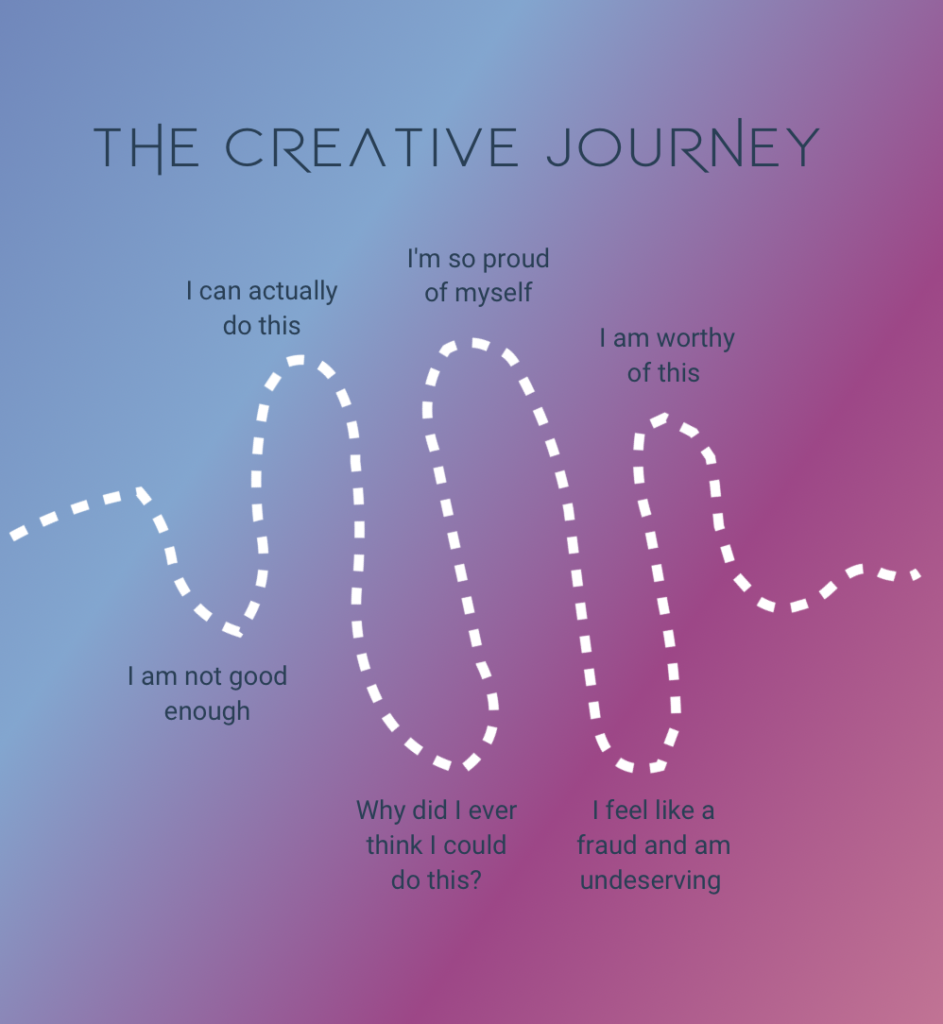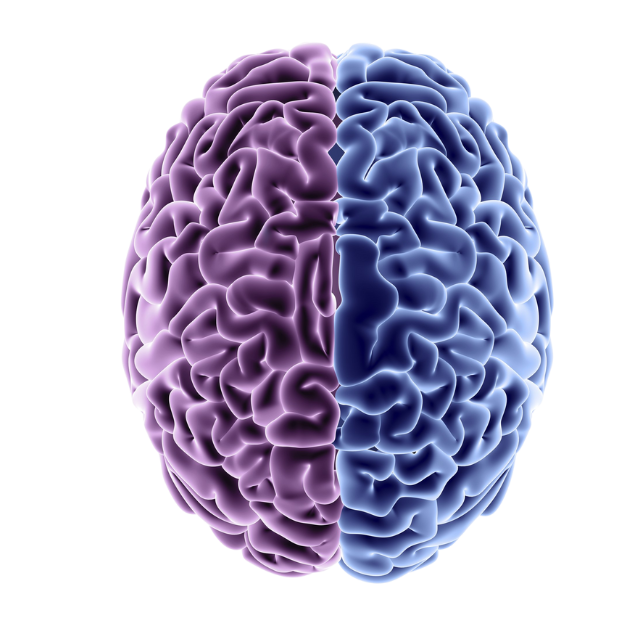Navigating the Creator Journey
In the journey through life, we play an active role as co-creators, shaping our reality with each decision and action. Our choices act as the building blocks of our personal narratives, and we’re writing those stories with every thought we think or action we take, moment to moment. The creator journey can be a thrilling ride, laden with triumphs and tribulations that shape our path to success and fulfillment. Marked by moments of inspiration and tireless dedication, it can be a testament to the human spirit’s limitless capacity for innovation. Yet, alongside the highs, imposter syndrome often lurks in the shadows, casting doubts on our accomplishments and undermining our confidence.
Imposter syndrome is the psychological experience of feeling like a fraud in some area of life, despite any success that has been achieved in that area. It may manifest as feelings of restlessness or nervousness, triggering self-doubt and negative self-talk.
Imposter syndrome is an inner saboteur, affecting the way you perceive yourself and your abilities. You may have experienced a lot of success in a particular area, but that doubtful voice inside your head catalyzes the stress response and reminds you that you could be doing better.
The 5 Types of Imposter Syndrome
Dr. Valerie Young, expert and co-founder of the Imposter Syndrome Institute, has conducted research to identify the five basic types of imposter syndrome.
- The Perfectionist: This saboteur believes that, unless you were absolutely perfect, you could have done better. It is its perfectionist traits that make you believe you’re not as good as others might think you are.
- The Expert: This saboteur feels there is so much more to learn, because you don’t know everything there is to know about a particular topic, or because you haven’t mastered every step in a process. Since there is so much more for it to learn, it doesn’t feel you have reached the rank of an “expert.”
- The Natural Genius: This saboteur doesn’t believe you are naturally intelligent or competent. If you don’t get something right the first time around or it takes you longer to master a skill, it feels like a fraud.
- The Soloist: This saboteur questions your competence and abilities because because you had to ask for help to reach a certain level or status. Since you couldn’t get there on your own, it feels like an imposter.
- The Superperson: This saboteur believes that you must be the hardest worker to reach the highest levels of achievement possible. Failing to do so makes it feel like a fraud.
It’s helpful to label these saboteurs in the third-person so you can create some distance from them. They are a set of habitual mind patterns, each with their own voice, beliefs and assumptions that work against your best interest. But you are not your thoughts. Thoughts are just psychological byproducts from past experiences, and they can be changed, neurologically, in an instant. Labeling and observing them as they appear to your consciousness serves to decrease their power so you can employ higher modes of thinking.
How To Know If You Are Experiencing Imposter Syndrome
Imposter syndrome is a widely experienced phenomenon affecting all people, regardless of their social or career status, skill level or degree of expertise. It’s been shown to be prevalent across creative fields, impacting confidence and stifling creativity. It’s estimated that up to 82% of people will experience this phenomenon at least once in their life.
Some common characteristics of imposter syndrome include:
- Overachieving – setting extremely high standards, yet not feeling satisfied with accomplishments
- Sabotaging your own success- identifying outside sources to blame for possible failures to protect from feelings of inadequacy
- Self-doubt
- An inability to realistically assess your competence and skills
- Attributing your success to external factors
- Berating your performance
- Fear that you won’t live up to expectations
- Setting very challenging goals and feeling disappointed when you fall short
Some common thought patterns associated with imposter syndrome:
- Who am I to think I can take on this challenge or achieve this goal?
- I always get lucky when it comes to success
- What gives me the right to be here?
- Am I smart enough to be here?
- I don’t know why I thought I could do this
- I am not talented enough to accomplish this
- I still feel undeserving of this accomplishment
The problem with imposter syndrome is that achievement and accomplishment does not alter your beliefs. Researchers have shown that within a relatively short period of time after external events, mood reverts to what is known as “baseline happiness” levels that existed prior to the accomplishment. of course with this baseline feeling, comes your habitual ways of thinking.
Utilizing Technology to Overcome Imposter Syndrome
VISUALIZEin360 represents an emerging frontier in mental wellness and cognitive enhancement. Its neuroscience-based technology is unveiling groundbreaking avenues to challenge the negative thought patterns associated with imposter syndrome. It offers a non-invasive method to improve cognitive flexibility, a key skill for managing imposter syndrome and fostering resilience. The convergence of cognitive behavioral therapy (CBT) concepts, mindfulness techniques and peak performance strategies serve to unleash creative potential, mitigating the impact of the inner saboteurs.
Harness the power of digital resources to engage in a continuous journey of self-discovery and skill enhancement. Through interactive learning experiences, users track their progress systematically, bringing awareness to the psychological limitations that often impede our performance efforts. It’s a visual testament to the growth and achievement taking place within your own mind. The principles of CBT are woven into experiences, guiding users through exercises that challenge and reshape negative thought patterns, providing a proactive defense against imposter syndrome. In this paradigm, technology fosters a mindset of continual learning and self-affirmation that resonates far beyond the digital realm.
V360s innovation provides tangible hope for the fight against imposter syndrome, promising to empower creators to rewrite their internal narratives and embrace their authentic abilities. By embracing technology that interfaces with our brains, we’re not only redefining our capabilities but also championing a future where the creator’s path is paved with self-assurance and resounding success.





